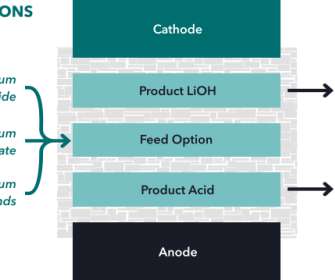Mangrove raises $3M from BDC Capital to accelerate deployment of battery-grade lithium processing systems
Green Car Congress
FEBRUARY 15, 2021
The platform technology is also being commercialized for conversion of waste brines to chemicals and desalinated water. Mangrove also says that its technology can reduce lithium hydroxide production costs from lithium brines by as much as 45%. —Mangrove’s CEO Saad Dara.












Let's personalize your content